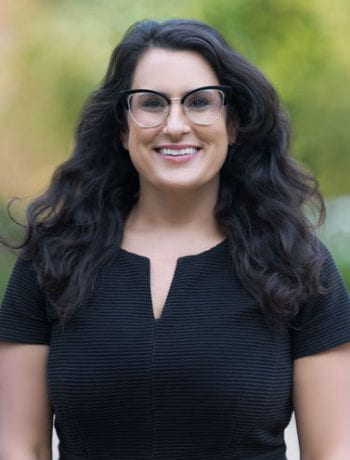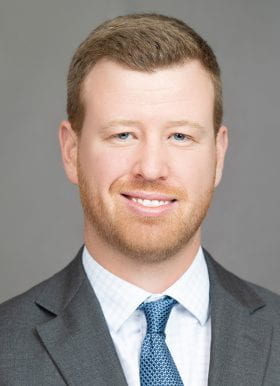Professional development spotlights of WashU employees
People are the core of WashU’s success. In support of our new strategic plan, Here and Next, read the quarterly spotlights on WashU staff who are exploring professional development opportunities and bettering our future as a collective team. On behalf of WashU Leads, consider your own professional growth with the Institute for Leadership Excellence (ILE) and revitalized Learning and Development programming.
Below are the spotlights of our staff.
Changing the Culture: Nadia Ghasedi

Nadia Ghasedi, associate university librarian, leads with curiosity. Her desire to learn pushes her to continue her growth journey, and to inspire her colleagues to pursue their passions. Ghasedi, a graduate of multiple leadership programs at WashU, including the Executive MBA program through Olin Business School, and more recently, the first cohort of WashU’s Institute for Leadership Excellence Program, enjoys being the positive change in her circles of influence.
Ghasedi believes to be successful at her goals, she must be open to her own growth, which can’t be done without professional development. With four promotions in her 17 years at WashU, she continues to push herself and her team to be the best they can be for their respective department.
“I want to leave things in a better place than I found them, and that requires growth,” Ghasedi said. “I don’t like being bored and am wired to seek out challenges. After I’m involved in a project, I hope things are better off, and that’s how I view leading my staff.”
Feedback is Essential
Ghasedi views her staff needing her less as an important part of their professional growth in addition to a measure of success in her leadership style. While she always makes herself available, Ghasedi wants to create a culture of shared leadership and empower her colleagues to be successful by their own definitions.
“I am big into self-awareness and feedback,” Ghasedi said. “We all have blind spots so building a work culture where feedback flows back and forth in a safe space is crucial. I’ve started to normalize a culture of feedback and creating more space for it.”
She isn’t shy to share feedback and she isn’t afraid to receive it. In fact, she proactively asks for feedback during each 1:1 with her direct reports. Although she encourages and supports feedback, she understands not everyone is willing or able to be vulnerable. To build trust and help her team feel comfortable, she’s started sharing what she would like to change about herself, her shortcomings and recognizing her own opportunities for growth.
“I’m not perfect and I talk a lot about not being perfect,” Ghasedi said. “We’ve developed trust, but it took time. By sharing my vulnerabilities, it gives space for them to feel more confident to share.”
I think one of the most influential things I’ve learned from Nadia is to put the time into building trust with my staff by giving direct, constructive feedback and being encouraging, receptive, and appreciative of my staff’s feedback.
Joy Novak, PhD, Head of Special Collection
Climb Your Own Ladder
“Ambition doesn’t look one way,” Ghasedi said. “it’s not always climbing the ladder and not everyone’s path has to look the same. It’s freeing when you realize leadership doesn’t look one way and it doesn’t have to fit one mold. Remember, you have to do what’s genuine for yourself.”
While Ghasedi’s professional goals include managing others, she’s aware and supportive that isn’t everyone’s career development journey. Many of her own developmental goals, and those of her colleagues, include expanding their skills through knowledge. There’s value to be found in joining a professionally aligned organization, sharing skills with the department or school, or networking and finding new peers to connect with. Many of these qualities she has found through the WashU’s Institute for Leadership Development’s programming.
“The ability to have meaningful engagement with leaders across the university that you wouldn’t normally have the opportunity to meet has been invaluable,” Ghasedi said. “I’ve also really embraced the concept of the growth mindset and have shared it with my team to help their growth and future career goals.”
Help Others Along the Way
Her dedication to self-improvement as a leader extends beyond her team at Olin. She is now coaching employees in the Leadership Excellence and Development Program (LEAD) at the Institute for Leadership Excellence. Mentoring and coaching have sparked a new area of interest for Ghasedi, and she enjoys seeing others thrive as she advises them.
Over the 8 years Nadia has been my supervisor, I’ve observed the impact of Nadia’s dedication to her professional development – not only in her own growth as a leader but also through the coaching she’s given me to become a stronger manager. Leadership is something that you can – and should – develop.
Joy Novak, PhD, Head of Special Collection
“When I realized I didn’t have to know the answers was also freeing,” Ghasedi said. “I’m not here to give answers, I’m here to guide them.”
Professional Growth and Empowerment: Matthew Berning

Matthew Berning, the new clinical manager of the orthopedic sports medicine practice, gives credit to the Institute for Leadership Excellence. Being a recent graduate of this program, Berning believes the connections he made within the program, gave him the tools for his new position within the university.
Berning has a rich history of being in the Orthopedic field, being an athletic trainer lead for two and a half years. It comes as no surprise that the ELP program had a direct impact on his career.
“Where it really helped me was on the interview process, reflecting back now, everything we discussed on our discussion board and interactive breakouts in our in-person classes, with established WashU’s hierarchy presentations, gave me such confidence to answer any type of management/leadership interview questions because we literally just talked about it!”
Mentorship
Having open conversations with peers and mentors is something that helped Berning realize his opportunity for growth, specifically with his supervisor.
“For me, I found that communicating my growth interests and desires to my direct manager, Angela Beran, really helped me find options and avenues to grow within WashU. She has been a great supporter/coach for me and really enlightened me about resources within WashU”.
Angela really helped spearhead his action to grow and evolve into a better leader. Eventually leading him towards the ILE and ELP program. “She really pushed me to apply as she thought it would be a great fit, and the more I looked into it, I agreed”.
Networking
Networking was something that wasn’t of too much interest to Berning, until he viewed it in a different light. Rather than it being a ‘to-do’, it became something he sought out to do. He believes taking ownership of your growth will ultimately be a key component in your career. A great starting point is getting out of your comfort zone.
“Network out of your comfort zone and meet new people. For me, I found LinkedIn a powerful networking tool. It’s a live, interactive resume that anyone can use. Find out what area you want to grow in may take some time, as well as some self-assessment. Recognizing your own strengths, weaknesses, and opportunities can help you understand who you are and where you want to go.”
Mindset
“The book, “Growth Mindset” by Carol Dweck, really gave me that ‘ah-ha’ moment when thinking about how your mindset can set you apart. It really helped me understand that challenges you come across professionally as well as personally, can be valuable learning experiences.”
Being surrounded by fellow professionals in the WashU community really propelled Berning to develop his leadership model. One that he uses to this day. This program allowed him to learn from their developed leadership model. Self-development is also something that Berning is doing to become a better leader.
“As I matured I my professional mindset, I found there are significant benefits in focusing on professional growth. These benefits include boosting confidence, developing leadership skills and networking.”
Find more resources and opportunities to develop your career online.